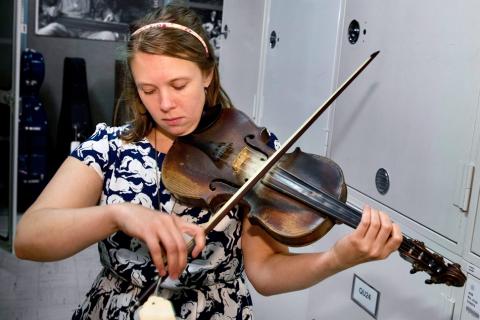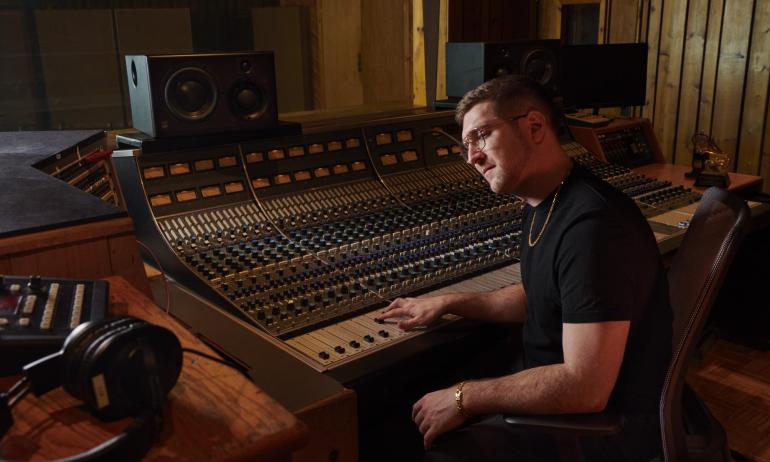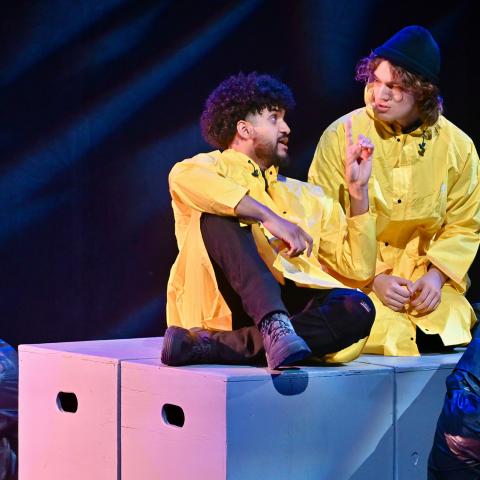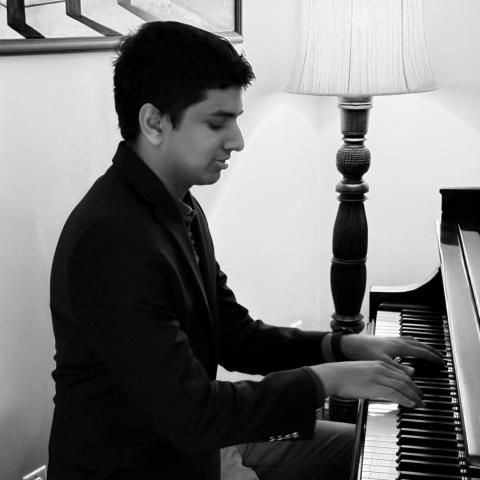Student Helps Smithsonian Tell Story of America with Music

Hannah Rose Baker plays Tommy Jarrell's fiddle at the Smithsonian.
Image by Hugh Talman
Every summer Berklee students pursue some of the coolest jobs in the music and performing arts industries. In our series Summer Stints we take a quick look at them.
Name: Hannah Rose Baker
Age: 32
Hometown: New York City
Job: Intern at the Smithsonian
Performance major Hannah Rose Baker says that the “real highlight” of her summer job wasn’t the time she got to play a Stradivari violin, or even the time she played a second Stradivari (or the equally hallowed Amati), but the time she picked up Tommy Jarrell’s fiddle.
“In my musical world, that’s basically like playing Jimi Hendrix’s guitar,” Baker said. And it was one of the considerable perks of working at the Smithsonian Institution in Washington, D.C., where she developed programs that tell the story of America through the lens of music.
Baker had heard about the 10-week paid internship, which ended August 17, from a post on musician Dom Flemon’s Facebook page, and knew she had to apply immediately.
Over the course of the summer, she created programs on the music of baseball and on songs important in U.S. labor history. She also helped develop presentations on women’s protest music, as well as a program about songs that allow us as a society to address difficult subjects. Less heady subjects included historic street vendor cries, electricity, and the cotton gin. As part of creating these programs, she conducted research in the museum and tracked down music in the Library of Congress and Smithsonian Folkways, the insitution's nonprofit record label.
When not researching, Baker and other musicians could be found playing the halls of the Smithsonian, where they performed on the museum floor four days a week. She often found herself having to adapt a wide variety of genres to her fiddle, and says that the music theory she learned at Berklee made it easier to translate complex chords into something that worked on her instrument.
Baker plans on wrapping up her final credits in the fall. Meanwhile, she’s working on a multimedia project in which she’ll mix traditional songs with new ones to explore how parts of Tennessee were affected by rural electrification.
She says that after Berklee she’d like to continue working in libraries, archives, or museums in some way. “Just soaking in the atmosphere of the museum has been fantastic.”




